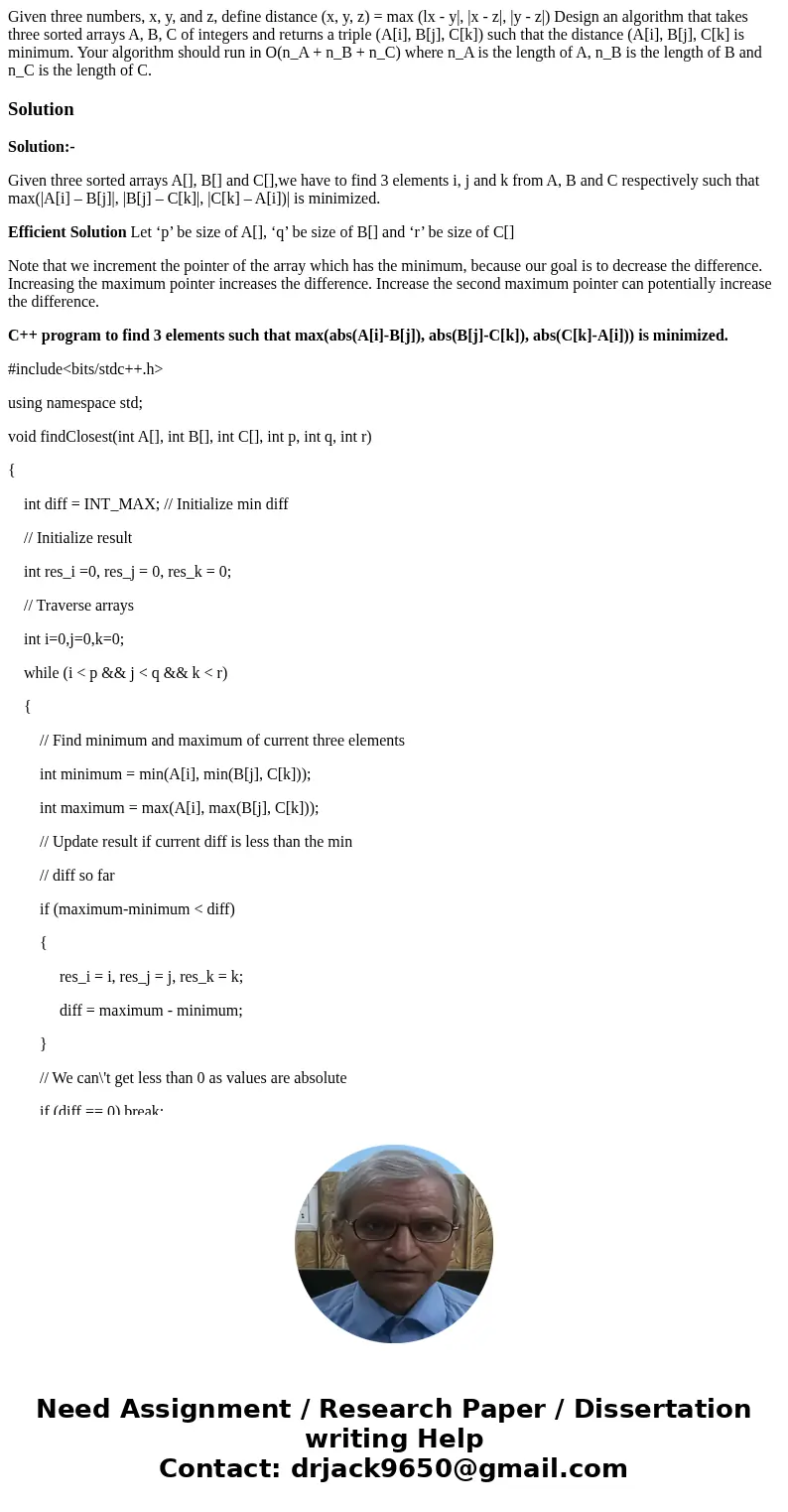Given three numbers x y and z define distance x y z max lx
Solution
Solution:-
Given three sorted arrays A[], B[] and C[],we have to find 3 elements i, j and k from A, B and C respectively such that max(|A[i] – B[j]|, |B[j] – C[k]|, |C[k] – A[i])| is minimized.
Efficient Solution Let ‘p’ be size of A[], ‘q’ be size of B[] and ‘r’ be size of C[]
Note that we increment the pointer of the array which has the minimum, because our goal is to decrease the difference. Increasing the maximum pointer increases the difference. Increase the second maximum pointer can potentially increase the difference.
C++ program to find 3 elements such that max(abs(A[i]-B[j]), abs(B[j]-C[k]), abs(C[k]-A[i])) is minimized.
#include<bits/stdc++.h>
using namespace std;
void findClosest(int A[], int B[], int C[], int p, int q, int r)
{
int diff = INT_MAX; // Initialize min diff
// Initialize result
int res_i =0, res_j = 0, res_k = 0;
// Traverse arrays
int i=0,j=0,k=0;
while (i < p && j < q && k < r)
{
// Find minimum and maximum of current three elements
int minimum = min(A[i], min(B[j], C[k]));
int maximum = max(A[i], max(B[j], C[k]));
// Update result if current diff is less than the min
// diff so far
if (maximum-minimum < diff)
{
res_i = i, res_j = j, res_k = k;
diff = maximum - minimum;
}
// We can\'t get less than 0 as values are absolute
if (diff == 0) break;
// Increment index of array with smallest value
if (A[i] == minimum) i++;
else if (B[j] == minimum) j++;
else k++;
}
// Print result
cout << A[res_i] << \" \" << B[res_j] << \" \" << C[res_k];
}
// Driver program
int main()
{
int A[] = {1, 4, 10};
int B[] = {2, 15, 20};
int C[] = {10, 12};
int p = sizeof A / sizeof A[0];
int q = sizeof B / sizeof B[0];
int r = sizeof C / sizeof C[0];
findClosest(A, B, C, p, q, r);
return 0;
}
Output:


 Homework Sourse
Homework Sourse